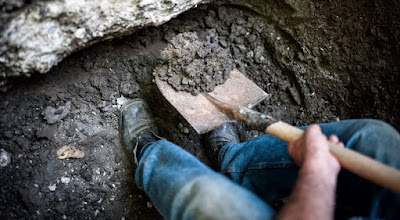If you were forced to categorize each person you know, you
could probably separate everyone into two basic groups: those who wait for rain
and those who dig wells. I will also go so far as to guess most would fit into
the former group.
Those who wait for rain are more passive. They may be
fraught with activity but are largely waiting for some outside influence or event
to change their circumstances. They believe – or at least behave as if – they
are a captive audience, at the mercy of the randomness and uncertainty around
them. As they suffer through the inevitable droughts in life, these people
wonder in frustration why the rain hasn’t come.
Then there are those who create wells. Rather than watch for
rain and helplessly wait for things to happen to them, these people will pick
up a shovel and dig. They understand God controls the seasons in their lives,
yet they also recognize their own responsibility for action. They realize each
person starts at different levels and must dig through different soils. Life isn’t
fair. They know some must slowly chip away at seemingly impenetrable bedrock. One
might find water quickly while others must dig much deeper. Some may even have
to abandon a well and start all over. In any case, these types of people take
an active role in facing life’s circumstances.
Periods of both rain and drought affect each one of us and
they are unavoidable. You often can’t manipulate the seasons of your life, but you
can control your actions. And while there is nothing wrong with hoping for and
praying for rain, that should be done while you dig your well.

Comments
Post a Comment